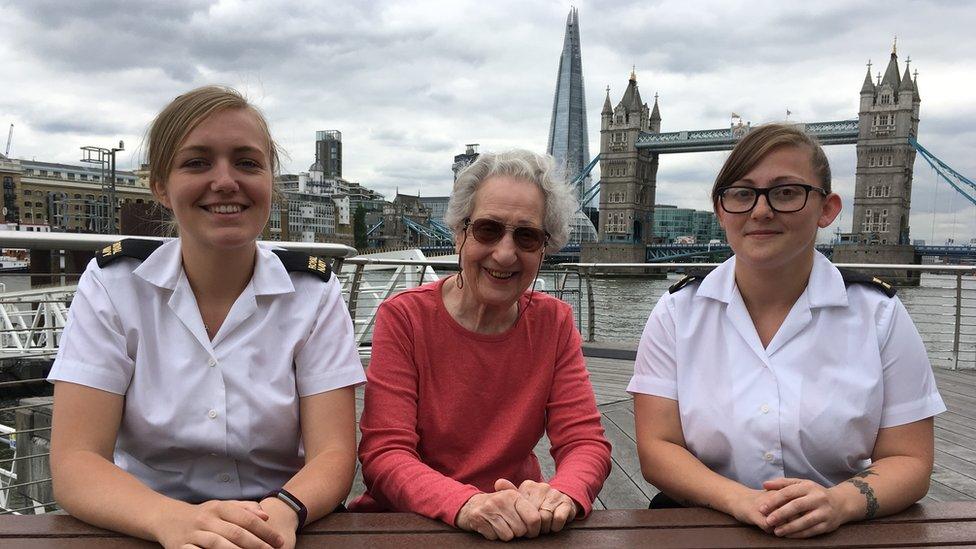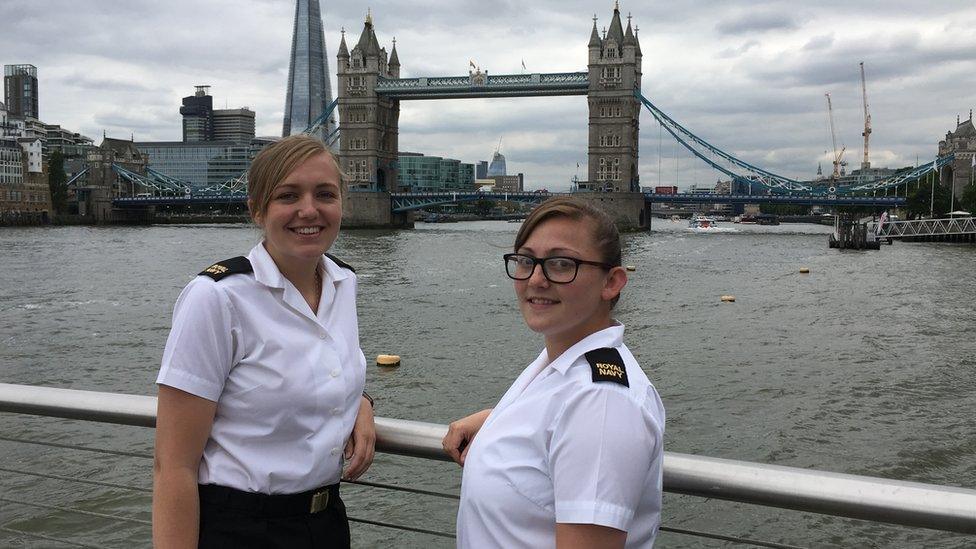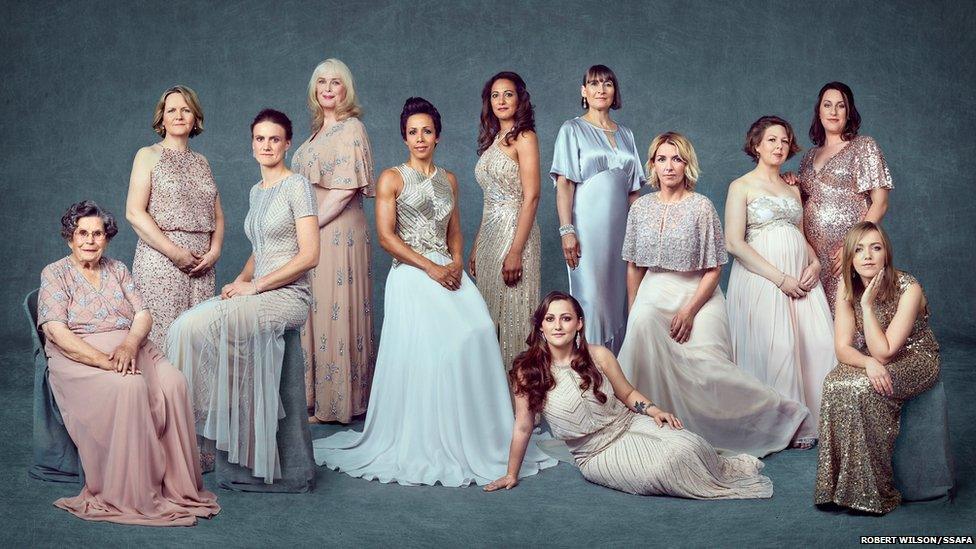'We served our country, 70 years apart' - 100 years of women in the Armed Forces
- Published

It's 100 years since women were legally allowed to serve in the British military.
Back then most were cooks or worked in administration. Today they are deployed in many different roles around the world.
Only last year the ban was lifted on women serving in close combat units, enabling women to fight on the frontline for the first time.
Newsbeat meets three women who served their country in very different times.
Able Seaman Lynsey Hellier, 23, is a chef in the Royal Navy
"Food is definitely the morale of the ship. If there isn't the right amount of food then people won't work to the best of their ability. So it's a tough job but a job that needs to be done."
After five and a half years of working as a chef, Lynsey is about to train to become a naval nurse.
"There's definitely something for everybody. There's the opportunity that if you join as one thing and you decide you want to change or do something different there are opportunities [to do that]."
Marie Scott, 91, served in World War Two
"In my day, 1944, they assumed you had an education, which in my case, was not quite accurate."
Marie signed up to the Wrens when she was 17 years old and became a trained switchboard operator.
"I was a war time Wren, stationed at probably the most important part of the country on D-Day.
"I had been given special training on a rather innovative piece of equipment called a VHF set.
"What I didn't realise until I began to operate it was that it was actually connected to the beaches at Normandy."
The Wrens were the Women's Royal Naval Service, which has since become part of the Royal Navy.
"Memories are a bit hazy now after 73 years, you can remember the highlights but the minutiae of the day has disappeared."
Able Rate Sara Jones, 25 works as a writer in the Royal Navy

Lynsey and Sara at HMS President on the River Thames
Sara's job involves overseeing HR and legal issues.
She's served on HMS Westminster which has carried out anti-piracy work in the Gulf and has also worked at a nuclear submarine base.
Last year former prime minister, David Cameron, lifted a ban on women serving in close combat units.
"If a woman can prove herself in the tests that men have to do then she should be given that fair opportunity to be in combat situations," says Lynsey.
"I think it's going to be an amazing thing," she tells Newsbeat.
Sara also thinks it's a brilliant opportunity.
"It's been a man's world for a very long time and I think for a woman to be able to do it, if they can do it, then I think it's brilliant."
The expectation is that the number of women applying for these roles will be small, but the decision to lift the ban puts the UK in line with other countries such as the US.
But Marie thinks the decision may not be a good thing.
"Women can be very vulnerable in those situations. If they're captured by the enemy they could undergo all sorts of fearful torture and sexual abuse. I don't think it should happen."

12 women who are either serving in the Armed Forces or are veterans
Celebrating 100 years
The Armed Forces charity SSAFA has marked the anniversary with a photo shoot.
Both Sara (sitting front and centre right) and Lynsey (sitting far right) are pictured.
The 12 women photographed include the first woman to kill in combat, the highest-ranking woman in the British Army and the first transgender woman to serve.
Olympic gold medallists Dame Kelly Holmes, who began in the army as a lorry driver, and Heather Stanning OBE, a former major in the Royal Artillery, also feature.
Find us on Instagram at BBCNewsbeat, external and follow us on Snapchat, search for bbc_newsbeat, external